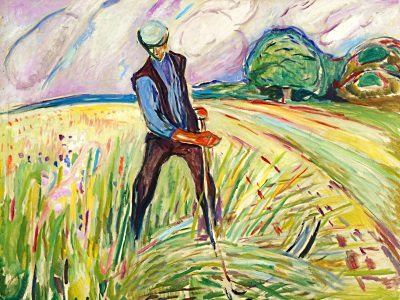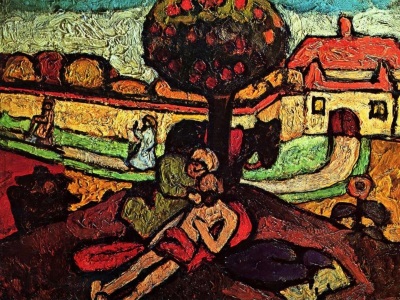for theirs is the kingdom of heaven.
Blessed are those who mourn,
for they will be comforted.
Blessed are the meek,
for they will inherit the earth.
Blessed are those who hunger and thirst for righteousness,
for they will be filled.
Blessed are the merciful,
for they will be shown mercy.
Blessed are the pure in heart,
for they will see God.
Blessed are the peacemakers,
for they will be called children of God.
Blessed are those who are persecuted because of righteousness,
for theirs is the kingdom of heaven."
Matthew 5:3-10
The Beatitudes cannot be taken apart. They portray the heart of the people of the kingdom – a heart whose veins cannot be dissected and pulled to pieces. Because of this, the Beatitudes begin and end with the same promise of possessing the kingdom of heaven. Those who are blessed are characterized by their poverty and neediness, longing, hunger, and thirst. At the same time, they possess wealth in love, energy for peace, and victory over all resistance. Their nature is purity and single-heartedness, in which they see God. These are people of inner vision, who see the essential. They bear the world’s suffering. They know that they are beggars in the face of the Spirit. Knowing they have no righteousness within themselves, they look to righteousness, and they hunger and thirst for the Spirit. Theirs is not the happiness of satiety; it is not the pleasure of gratified desire. A deeper happiness is disclosed here to eyes and hearts that are open. Only where people feel poor, empty, hungry, and thirsty will there be an openness to God and his riches.
So they are both poor and rich at the same time. They are people of faith who have nothing in themselves and yet possess everything in God. In spite of failing again and again, they try to reveal God’s invisible nature through their deeds. Just as they themselves receive mercy, so they pour mercy on all in need. They are on the side of poverty and suffering, on the side of all who suffer injury, and they are ready to be persecuted with them for the sake of justice. They know that they cannot go through life without struggle and that their opponents’ slander will fall on them like a hailstorm; yet they rejoice in this struggle and remain the peacemakers who overcome opposition everywhere and conquer enmity through love. The people of the Beatitudes are the people of love. They live from God’s heart, and there they feel at home. The law of the Spirit of life has set them free from the inescapable law of sin and death; no power can separate them from the love of God in Christ Jesus (Rom. 8:2, 38–39).This is the essence of true religious experience: richness in God and poverty in oneself. These contrasting elements always belong together: becoming one with God, and yet always longing for him; firmness of heart, and weakness of soul; the justice of God’s love, and the suffering of injustice. Wherever there is religious satiety and moral self-satisfaction, wherever political achievements or other good works create self-righteousness, wherever anyone feels rich or victorious, the happiness in the fellowship of the kingdom has been lost. Those who believe in the justice of God’s future and know the happiness of his kingdom are guided by Jesus on the simple way of discipleship. They feel the injury of injustice in themselves and all around them, yet their hearts are fixed on the Spirit and his prophetic justice of love. They know the poverty of spirit in themselves and in all humankind, but they have a vision of the justice of God’s kingdom and are comforted by the certainty that love shall conquer the earth.
What is most remarkable and mysterious about these people is that they perceive everywhere the same seed of God. Where human beings break down under the suffering in the world, where hearts feel their own poverty and long for the Spirit, there they hear his footsteps in history; where the revolutionary desire for social justice arises, where a protest against war and bloodshed rings out, where people are persecuted because of their socialism or pacifism, and where purity of heart and compassion can be found – there they see the approach of God’s kingdom and anticipate the bliss to come.
There is no other way to prepare inwardly for the coming kingdom than the way Jesus shows us here. Only by admitting our poverty of spirit can we start on this way. Everything else disappears and becomes nothing when we hunger and thirst for the justice of love. This is essential for opening our hearts to what God alone can give.
The original can be read in our digital archive: Eberhard Arnold, “Das Glück,” Das neue Werk 2:14/15 (1920): 345–47.
Article edited for length and clarity.


